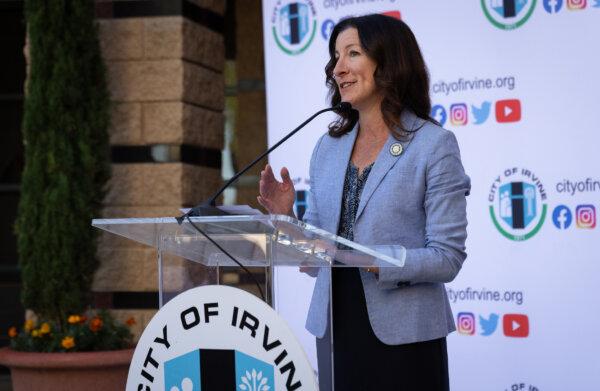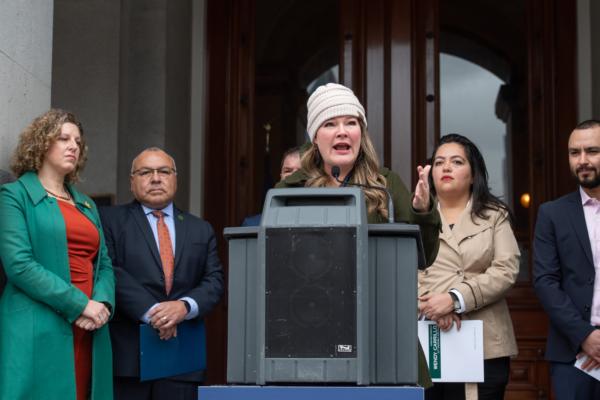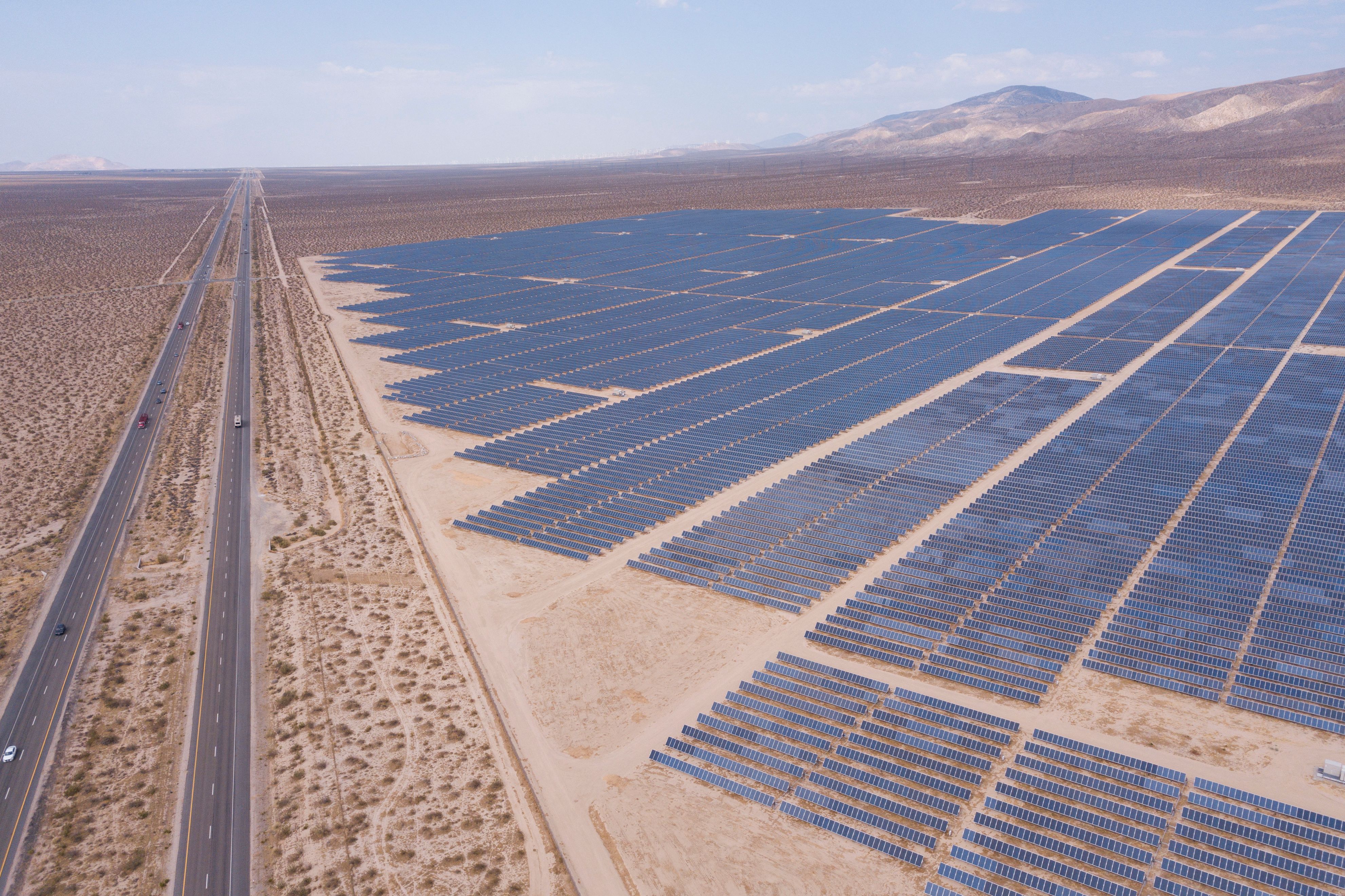With electricity bills on the rise in California, lawmakers from both sides of the aisle are venting their frustration with the effect the state Legislature’s “clean energy” policies are having on constituents.
“As anyone ... who’s opened their utility bill recently can testify, rates are skyrocketing in California,” Assemblywoman Cottie Petrie-Norris, chair of the Assembly Utilities and Energy Committee, said to open a March meeting that served as the annual update of the utility industry. “The harsh reality is that millions of Californians are at the breaking point.”
Households and businesses are suffering from the unprecedented increase in utility prices, she said.

Assemblywoman Cottie Petrie-Norris speaks in Irvine, Calif., on Nov. 21, 2023. (John Fredricks/The Epoch Times)
“Some businesses are struggling to keep their doors open, and quite literally, to keep their lights on,” Ms. Petrie-Norris said.
Acknowledging the cost of electricity is on the rise, the regulator in charge of overseeing the industry said the state’s green energy policies are affecting pricing.
“This all comes at a cost,” Alice Reynolds, president of the California Public Utilities Commission, said during the hearing. “Any investment in clean energy technology ... is funded through electricity bills.”
Over the past decade, electricity rates for the three largest investor-owned utilities outpaced inflation—which totaled 30 percent. Prices have spiked 127 percent for Pacific Gas and Electric customers since 2014.
“Rates and bills have been increasing unsustainably, especially since 2020,” Linda Serizawa, deputy director of energy at California’s Public Advocates Office, told the committee. “Increases are inequitable and challenge our electrification goals.”
PG&E’s rate increase request in 2023 was the largest ever, she told lawmakers.
Rising prices are affecting families across the state, with more than 20 percent—almost 2.5 million—of households behind on their utility bills. About half of those in arrears are PG&E customers, according to data she presented to the committee.
Changes to rate structures are needed to address the issue, she said.
Also, subsidies for rooftop solar customers shifted $6.5 billion in costs to customers without solar panels, Ms. Serizawa said.
“We should take out all the fat in utility bills,” she said. “This means eliminating cost-ineffective programs.”
Republican Assemblyman Jim Patterson, vice chair of the committee, argued that the state’s clean energy goals are negatively affecting Californians.
“We’re trying to decarbonize the fifth largest economy [on] the planet, and while we’re doing that, we’re putting millions of Californians into poverty,” Mr. Patterson said. “I’m just not hearing solutions here that make a lot of sense.

Assemblywoman Tasha Boerner speaks at a press conference on March 22, 2023. (Courtesy of Tasha Boerner)
“All of the goals that the state has set up are going to be very expensive, and somebody’s going to have to pay,” Mr. Patterson said. “The aspiration is misguided, and until we readjust the aspiration, we’re not going to be able to readjust the price tag and the burden that we’re asking our ratepayers to pay.”
He said the prices amount to “rate gouging” and that bills are higher now than anyone could have imagined a decade ago.
“In the 11 or 12 years I’ve been here ... I’ve seen the grid become less and less reliable and more and more expensive,” Mr. Patterson said. “Bills are really, in my judgment, excessive.”
Democratic Assemblywoman Eloise Gomez Reyes, another committee member, agreed that rates are too high.
“It’s untenable now, and it’s unsustainable to expect the users to continue to pay increased rates,” Ms. Reyes said during the hearing.
Other Democratic colleagues and committee members concurred.
“This is a real cost of living problem for real Californians,” Assemblywoman Tasha Boerner said. “And not just low-income Californians. We’re talking about the middle class.”
Citing statistics that show that PG&E’s profits totaled $2.2 billion in 2023, a 25 percent increase from the prior year, one committee member asked the utility commission for an explanation.
“I want to reiterate the big picture about the impacts that really these untenable rate levels are having on our constituents,” Assemblyman Damon Connolly said during the hearing. “We just want an explanation as to why PG&E’s profits are increasing by a full quarter year-over-year at the same time that energy rates Californians are paying are spiking.”
Utility policy experts suggested separating climate agendas from rates to relieve the burden on ratepayers.
“We need to get non-essential services and investments out of rates,” Michael Wara, director of climate and energy policy at Stanford University, said.
He argued that households are suffering from the state’s decisions.
“We really need to think about this as a crisis that is now,” Mr. Wara said. “We have to recognize the human impacts of this affordability crisis.”
Some people might see their health jeopardized because they can’t afford to run air conditioners this summer in areas of the state where temperatures reach triple digits, he warned.
One congressman representing a Central Valley district agreed.
“It’s 105 degrees out there some days in the summer, and working families have their screen doors closed and the main door open, living in the heat because they can’t afford to run the air conditioner,” Republican Rep. John Duarte told The Epoch Times.














